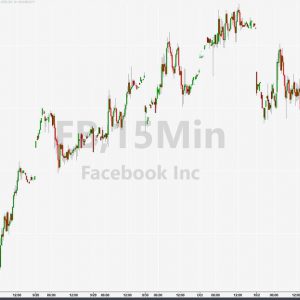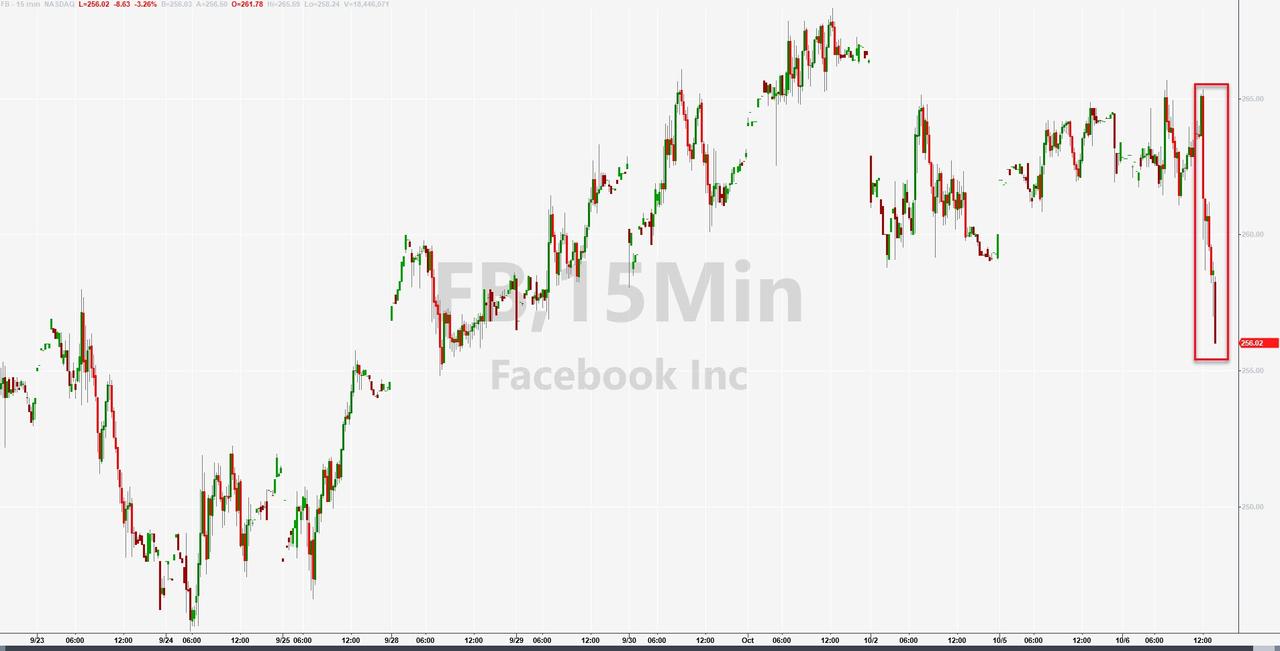Feature your business, services, products, events & news. Submit Website.
Breaking Top Featured Content:
House Dems Anti-Trust Report Accuses “Big Four” Tech Firms Of Enjoying “Monopoly Power”

Tyler Durden
Tue, 10/06/2020 – 16:32
Update (1625ET): After details from a draft version of the report leaked late last night, along with critical notes provided by GOP members of the committee, a House anti-trust subcommittee has released the final version of its report about anti-competitive behavior in Big Tech.
And as the leaks earlier hinted, the report takes issue with tech companies owning businesses where they are both the owners of a platform, and a competitor on said platform. Amazon, Apple, Alphabet and Facebook shares tumbled after hours as the report singled out all three and cited them for various abuses: Amazon, the Jeff Bezos-founded behemoth, has a monopoly over small sellers that use its platform. Facebook represents a monopoly in the social media space via its ownership of multiple platforms, including Instagram. Google and its owner, Alphabet, were accused of gobbling up niche search engines and other companies to preserve Google’s dominance.
Shares of the big tech behemoths took a hit in after-hours trade.
The nearly 450-page report is the result of a 16-month-long investigation by the subcommittee, led by Rhode Island Democrat David Cicilline.
Here’s a summary of the recommendations (text courtesy of CNBC):
- Imposing structural separations and prohibiting dominant platforms from entering adjacent lines of business. Subcommittee Chairman David Cicilline, D-R.I. has previously referred to this method as a type of “Glass-Steagall” law for the internet, referring to the 1930s era law that separated commercial from investment banking.
- Instructing antitrust agencies to presume mergers by dominant platforms to be anticompetitive, shifting the burden onto the merging parties to prove their deal would not harm competition, rather than making enforcers prove it would.
- Preventing dominant platforms from preferencing their own services, instead making them offer “equal terms for equal products and services.”
- Requiring dominant firms to make their services compatible with competitors and allow users to transfer their data.
- Overriding “problematic precedents” in antitrust case law.
- Requiring the Federal Trade Commission to regularly collect data on concentration.
- Increase budgets for the FTC and Department of Justice Antitrust Division.
- Strengthen private enforcement by eliminating forced arbitration clauses and limits on class action lawsuits.
Axios reported earlier that the committee briefed Joe Biden’s tech team about its findings on Tuesday. As we noted earlier, we wouldn’t be surprised to see them give some critical notes of their own, like the committee’s Republican members did earlier.
Jim Jordan, the top Republican on the anti-trust committee, slammed Dems for ignoring problems affecting conservatives, like persistent discrimination, in the report.
REP. JIM JORDAN: “Big tech is out to get conservatives. Unfortunately, the Democrats’ partisan report ignores this fundamental problem and potential solutions and instead advances radical proposals that would refashion antitrust law in the vision of the far left.” https://t.co/NyKKI6FxrV
— Josh Caplan (@joshdcaplan) October 6, 2020
Readers can find the full report here.
* * *
Big Tech’s efforts to cozy up to former Vice President Joe Biden in the hopes that he triumphs over President Trump on Election Day might not amount to much as Democrats in the House are launching their own push to break up big tech, as the DoJ’s anti-trust wing expands its investigation to focus on stock-exchange financial data tiering.
Drawing their inspiration from EU anti-trust czar Margrethe Vestager, Democrats on the House anti-trust subcommittee have written a draft report outlining inevitable conflicts that arise from tech companies like Amazon, Apple and Google-owner Alphabet both owning a marketplace, and selling their products in the marketplace.
The report, written after more than year of scrutiny by a special House anti-trust panel led by Rhode Island Congressman David Cicilline, was apparently leaked to Bloomberg, along with an official critique drafted by a Republican colleague (suggesting that GOP members were behind the leak), some time over the weekend. Before the leak, CNBC had reported that the process of finalizing and releasing the report had been delayed due to some last minute information-gathering involving Facebook.
But even in draft form, the recommendations would represent “the most dramatic anti-trust overhaul in decades” if approved, including Cicilline’s “Glass-Steagal Act for Tech companies”, which would effectively force tech giants like Amazon and Facebook to spin off businesses. Republican Representative Ken Buck of Colorado told Bloomberg that the provision would be a “non-starter” in any future legislation.
The report also reportedly outlined a proposal requiring tech companies to allow total personal data transparency and allow users to ‘move’ their data if they so choose.
The draft report would also recommend legislation that would require the tech companies to allow users to easily move their data from one website to another, according to Buck. It also recommends legislation to shift the burden of proof in merger cases to the tech companies, cap the market share in some mergers to 25% for buyers, overturn Supreme Court and other decisions that critics say have hampered enforcement agencies from blocking mergers and eliminate arbitration clauses in terms of service.
Another proposal that Buck warned could be dangerous: an outright ban on tech companies acquiring rivals.
While Buck said he supported a burden-shifting approach, he said Congress should gather more information on another proposal by the Democrats: a ban on acquisitions of future rivals and start-ups, like Facebook’s takeover of Instagram. Such a ban would prevent start-ups from profiting from their ideas by selling to another company, and reduce incentives for investors to back start-ups, Buck said.
Bloomberg noted that one former anti-trust official recommended in a hearing that the law be changed to put the burden on the acquirer to prove to the government that the deal won’t negatively impact competition.
At a recent hearing, a former head of the Justice Department’s antitrust division said that courts have made it nearly impossible for the government to stop dominant companies from acquiring nascent competitors and suggested one fix would be to put the burden on buyers to prove that the deals would be good for competition. That could make it easier for antitrust enforcers to block deals.
To be sure, Dems face an uphill battle getting anti-trust regulation through Congress, because even if Dems take the Senate in November, the GOP could still use procedural tools to block legislation. There’s also the chance that a Biden Administration is more deferential to big tech than Biden’s own statements – he has railed against the monopoly power and growing influence of big tech – would suggest. But even if Congress never lifts a finger, state AGs (working alongside the AG Barr-run DoJ) are working on their own lawsuits, and the FTC, in cooperation with the DoJ’s anti-trust division, is working on several investigations of its own.
But whether they will ultimately succeed in dramatic steps like forcing Facebook to spin off Instagram remains to be seen.
Continue reading at ZeroHedge.com, Click Here.





